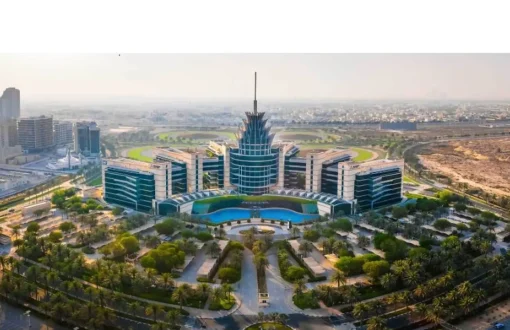Best Real Estate Investments: A Smart Guide for Dubai Buyers

Best Real Estate Investments: A Smart Guide for Dubai Buyers
When you’re looking for the best real estate investments, especially in a dynamic market like Dubai, the developer you choose can make or break your strategy. This guide focuses on why that choice matters, how to avoid pitfalls, and what smart buyers should be asking.
Why Your Developer Choice Matters
Zawya+1
But not all developers deliver equal value. Choosing a reputable company ensures:
- Quality delivery: Projects are delivered on time and meet promised specifications.
- Resale and rental value: Strong reputation boosts liquidity and demand.
- Peace of mind: Reliable developers support investors through upticks and corrections.
When it comes to the best real estate investments, developer reputation is often as important as location or price.
Want the best real estate investments? Avoid these 6 Red Flags
Here are six warning signs that suggest you may want to pause before buying:
- Unlicensed brokers — Every agent must be registered with the Dubai Land Department. Ask for their license ID or check DLD’s database.
- Exclusive digital listings — If viewings are refused and only staged photos are shared, trust nothing—it’s a red flag.
- Missing payment plan details — Poor clarity on charges, maintenance, or hidden fees is often a sign of trouble.
- Unclear project timelines — For off-plan investments, uncertain handover dates can lead to unexpected delays
- Unverified developer track record — A credible firm should have completed projects you can see in person and verified buyer feedback.
- Weak location value — Projects without nearby infrastructure, such as schools, transport, or amenities, may struggle with rentals or resale.”
Expert Questions to Ask Before Buying
Asking the right questions from the start turns you from a hopeful buyer into a confident investor. Here’s what savvy investors always verify.
- Legal and structural clarity
- Are viewings physical or virtual?
- Is the property freehold or leasehold? What are the rights?
- Financial transparency
- What is the full breakdown of costs (service, maintenance, taxes)?
- What payment plan options exist—e.g., 60/40, 70/30, 50/50?
- Location specifics
- What’s nearby? Transport, schools, retail, parks.
- Is the area targeted for price growth?
- Project delivery
- Has the developer completed similar projects?
- Can you visit handover units or speak with current owners?
- Market timing
- When is the ideal time to buy? Seasonal dips, such as during Ramadan, can present attractive pricing opportunities.
- Are listings shrinking while activity remains high?
- When is the ideal time to buy? Seasonal dips, such as during Ramadan, can present attractive pricing opportunities.
Top Traits of Trusted Developers
- High transaction volume in the market indicates credibility and stability.
Dubai saw a 40% jump in property sales in the first half of 2025 alone.
Zawya - Foreign investment inflows are a key indicator. Dubai’s luxury market experienced a 62% rise in British buyers, driven by favorable exchange rates and targeted launch campaigns. Reuters
- REIT and institutional backing—like a recent IPO reinforcing Dubai’s housing trust factor—adds credibility.
Reuters -
Off-plan properties remained highly popular in Q1 2025, representing over 56%, driven by confidence in ongoing infrastructure and flexible payment plans. Inside Realty
Custom Checklist Before You Sign
|
Step |
What to Check |
Why It Matters |
|---|---|---|
|
Licensing |
Verify broker via DLD |
Avoid scams |
|
Inspection |
Request a site visit |
Assess builds firsthand |
|
Payment Breakdown |
Understand all fees |
Avoid surprises |
|
Payment Terms |
Look for flexible plans (e.g., 60/40) |
Manage cashflow |
|
Infrastructure |
Nearby schools, stores, transit |
Improves value |
|
Developer Track Record |
Visit completed sites |
Predict delivery quality |
|
Market Timing |
Ramadan or off-peak months? |
Potentially better pricing |
|
Market Data |
Review local sales vs. historical trends |
Confirm growth potential |
|
Legal & Ownership Details |
Ask about fees, lease terms, taxes |
Prevent legal issues |
|
Exit Plan |
Check resale demand/rental rates |
Ensure return potential |
Hidden Costs First-Time Buyers Often Overlook
Buying your first property in Dubai can feel exciting, but the price you see isn’t the whole story. Many first-time buyers are surprised by extra costs that quickly add up. Here’s what to keep in mind:
- Registration Fees: You’ll pay a small percentage to officially register the property. It’s easy to forget this until the last minute, so plan for it early.
- Building and Maintenance Charges: Every building or community has annual fees to cover cleaning, security, and shared facilities. Luxury towers with gyms or pools usually cost more.
- Utility Setups: Connecting water, electricity, and gas may require deposits. Some communities also have extra charges for shared spaces or landscaping.
- Legal Help: Even a simple property contract can hide tricky details. A lawyer might cost a little upfront, but can save you big headaches later.
- Bank and Loan Costs: If you’re financing your property, banks can charge processing or insurance fees. Some loans even have penalties if you repay early.
- Furnishing and Fit-Outs: Off-plan or partially finished properties often need kitchens, wardrobes, or appliances added. This can be surprisingly expensive.
- Managing Rentals: If you plan to rent the property, management companies usually take a cut of the rent.
- Insurance: Optional but wise—property insurance can protect you from unexpected problems.
Mistakes to Avoid for First-Time Dubai Property Investors
When investing in Dubai real estate for the first time, avoiding common pitfalls can save you money and stress. Key mistakes to watch for include:
- Rushing into a purchase: Don’t buy without researching the market, neighborhood trends, and potential growth areas.
- Ignoring developer reputation: Always check the track record, completed projects, and customer feedback before committing.
- Underestimating extra costs: Consider service fees, registration fees, maintenance charges, and other hidden expenses.
- Skipping professional advice: Consult real estate agents, legal advisors, and property experts to guide you through contracts and regulations.
- Focusing only on price: Low prices can be tempting, but quality, location, and long-term value matter more.
- Overlooking resale or rental potential: Think about future returns, not just immediate ownership benefits.


